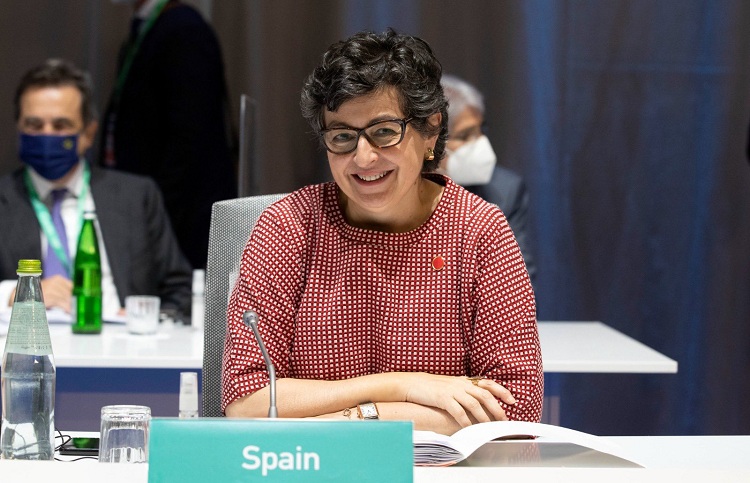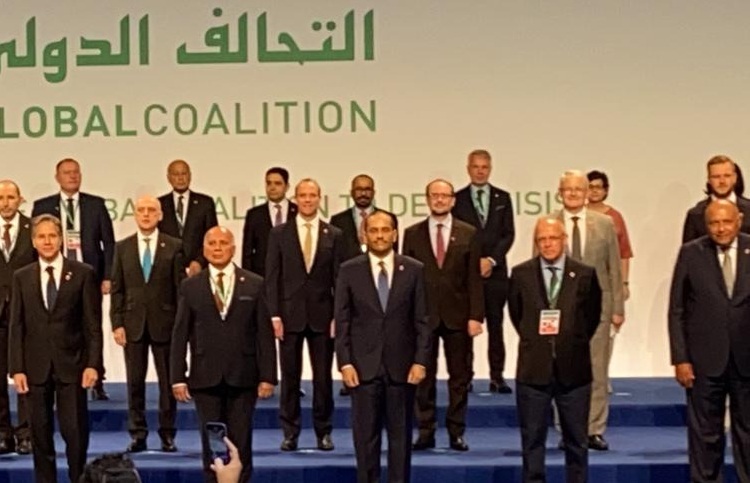Eduardo González
The Minister of Foreign Affairs, Arancha González Laya, participated yesterday in Rome in the ministerial meeting of the Global Coalition against Daesh, where she expressed her support for the Italian proposal to create a specific working group on the rise of the terrorist group in Africa.
“In Rome, all the members of the Coalition against Daesh have committed ourselves to continue fighting terrorism in Iraq and Syria but also to curb the spread of Daesh in Africa”, the minister stated via her Twitter account.
During her speech, and as she herself had advanced last Friday at a press conference, Gonzalez Laya asked the Coalition to apply in the African continent the “lessons learned” in Iraq and Syria because the advance of Daesh in Africa, especially in the Sahel and in the east of the continent, shows that the terrorist group “is active, spreads, expands and recruits and above all commits acts of terror against the civilian population on the African continent and therefore we have to pay great attention to it”.
For this reason, the Spanish minister expressed her support for Italy’s proposal to “create a special working group on Africa” within the Coalition, “because we know that terrorism is tremendously active in the Sahel and what it seeks is to destabilize these populations, create fracture, create chaos and confusion”, as well as contributing to fuel human trafficking and irregular migration from Libya, Tunisia, Morocco or Algeria. Therefore, “we also have to be concerned and pay great attention to the situation of terrorism in the Sahel”, she concluded, in statements to the press provided by the Ministry.
The meeting, co-chaired by Italy and the United States, brought together representatives of the 83 Coalition members, including more than 40 foreign ministers. At its conclusion, the attendees adopted a final declaration in which they reaffirmed their “shared determination to continue the fight against Daesh/ISIS and create the conditions for the terrorist group’s lasting defeat” and pledged to “strengthen cooperation” to ensure that “the core of Daesh/ISIS in Iraq and Syria, and its affiliates and networks around the world, cannot reconstitute any territorial enclaves or continue to threaten our homelands, peoples and interests”. Daesh “no longer controls territory and nearly eight million people have been liberated from its control in Iraq and Syria, but the threat remains”, they warned.
Moreover, the ministers drew attention to “security in other continents and regions, particularly Africa”, and noted “with great concern” the threats to security and stability from Daesh affiliates and networks in sub-Saharan Africa, “specifically in the Sahel region and in East Africa/Mozambique”. The Coalition therefore pledges to “work with affected countries to address the threats” in order to “ensure the organization’s lasting global defeat.” Precisely, the Coalition yesterday welcomed three new African members, the Central African Republic, the Democratic Republic of Congo and Mauritania. The ministers also reaffirmed “their intention to hold the next ministerial meeting of the Global Coalition in June 2022”.






